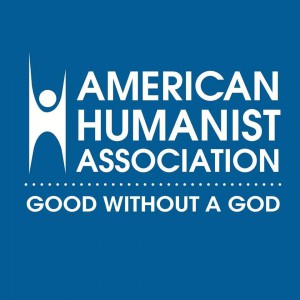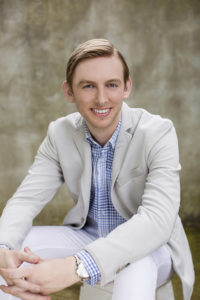Meet the Intern: Sean Avolio

Please welcome the Social Justice Digital Media Intern, Sean Avolio!
TheHumanist.com: What is your educational and work background?
I graduated from Columbia University in 2016 with a BA in human rights and anthropology. As a human rights scholar, my main focus of study was on the role that religion plays in the hindrance of human rights’ movements across our planet. I’ll be starting law school this August, and it is likely that I will ultimately work in human rights law.
TheHumanist.com: How did you first learn about humanism?
When I first became an atheist as a teenager, I began obsessively googling and researching atheism, learning about the community, its most prominent public figures, and its major organizations. The American Humanist Association came up right next to American Atheists and Center for Inquiry. I visited the AHA’s website, clicked on the “What is Humanism?” tab, and voilà, I learned about humanism and instantly added “humanist” to my list of identities.
TheHumanist.com: Did you grow up in a traditional religious faith? How did it impact you?
 I grew up in an evangelical Christian family. Church was a significant part of my life throughout my childhood. I was indoctrinated with a literal interpretation of the Bible, believing in creationism over evolution and emphasizing faith over reason.
I grew up in an evangelical Christian family. Church was a significant part of my life throughout my childhood. I was indoctrinated with a literal interpretation of the Bible, believing in creationism over evolution and emphasizing faith over reason.
I began questioning my sexuality in my early teen years, as when my hormones started to rage, I could not get romantic and sexual thoughts about men off my mind. I strongly felt that homosexuality was a sin because that was what I was always taught, but the feelings I was having came so naturally and felt so right that they incited a long period of questioning the legitimacy of everything I had been taught about my religion and the existence of God. I eventually came out of the closet when I was eighteen and no longer felt welcome in any evangelical milieu. I read the Bible cover-to-cover at this time and concluded that it was a fictional, poorly written book of horrors that I wanted nothing to do with anymore. I had no interest in trying out another religion, and I ultimately determined that I was an atheist.
Most of my relatives remain homophobic, evangelical Christians, and I keep most of them at a distance as a result. This is really unfortunate, because I love them all deeply, but their intolerance has caused me so much pain over the years that I feel it’s best to minimize their roles in my life. The anger and anxiety I experience over my family’s bigotry are always there, serving as a backdrop to my life journey and motivating me to keep moving forward and striving to be the best, most educated, empathetic, rational, and accomplished person I can be.
TheHumanist.com: What interested you most about interning for the American Humanist Association?
I’m excited to work amongst like-minded individuals for an organization that I have admired for a long time. As a gay feminist, atheist, and humanist, I am proud to be a part of an association that not only advocates for church/state separation and equality for humanists and atheists, but also recognizes the importance of furthering all human rights and social justice causes. If you want to fight religion, fighting for causes like gender equality and LGBTQ+ rights is essential, and it’s pretty awesome that the American Humanist Association understands that.
TheHumanist.com: What book has influenced you the most?
While the Bible had a significant impact on me by making me an atheist, Sam Harris’s The End of Faith helped me come to terms with living life without religion or belief in a deity. The book led me to recognize that religion is a destructive force in the world and that faith is not a virtue. Harris’s emphasis on promoting critical and rational thought inspired an inquisitiveness in me that has only increased with age. The writing of Sam Harris ultimately motivated me to become a part of the atheist community and be outspoken about my atheism and the injustices that religion gives rise to around the world.
TheHumanist.com: If you could have dinner with any three people in the world (living or dead), who would they be and why?
Gloria Steinem, Madonna, and Cher. Have I mentioned I’m gay?
